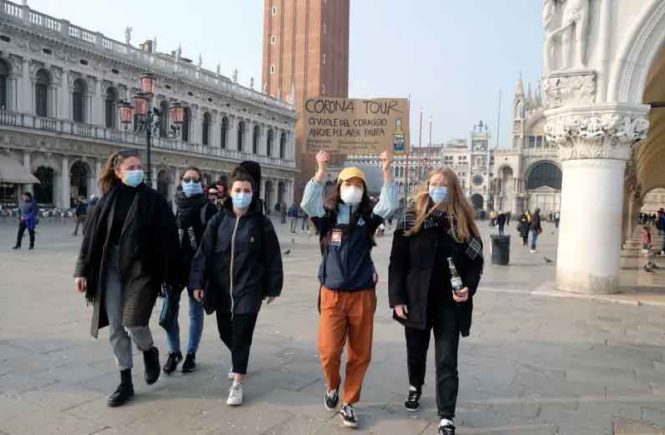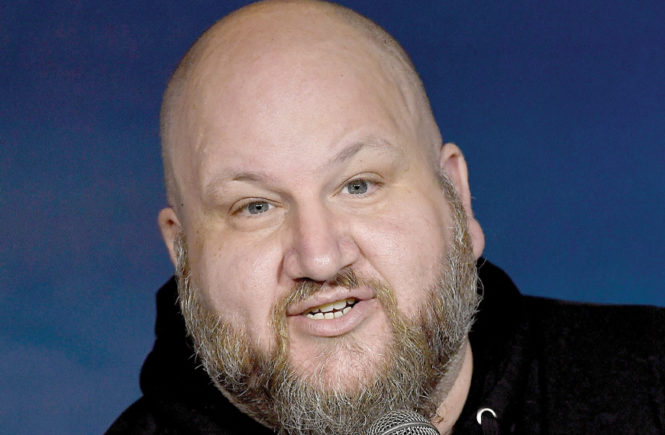Looking out the window of his office, Rabbi Zalman Grossbaum finds it hard to get work done when he sees kids enjoying the miniature town he built for them.
The indoor “Main Street” inside his enclosed “LifeTown” complex in Livingston, New Jersey, lets children with special needs — “special abilities,” Grossbaum insists — hone their social skills, and he always wants to join them.
“I feel this magnetic pull to come out here and to be with the kids and experience life with the kids because there’s something absolutely magical for what happens here,” Grossbaum said standing in the miniature town, known as LifeTown Shoppes.
If there is any lingering frustration for the seven years, including a year of construction that stretched into three, it took to convert the 53,000 square-foot (4,924 square-meter) building into his LifeTown dream, Grossbaum does not show it.
The 48-year-old rabbi seems incapable of not smiling from beneath his early salt-and-pepper beard and silver-frame glasses as he explains the interactive features of the complex that welcomes children of all faiths, most of whom have a range of physical or intellectual disabilities.
Autism is one of the most common conditions for children who come to LifeTown on school trips or with their parents, Grossbaum said.
In fact, New Jersey has the country’s highest rate of autism spectrum disorder, with one child in 34 diagnosed with it, as opposed to one in 59 nationally, according to the service organization Autism New Jersey.
At the Shoppes, LifeTown’s 11,000 square-foot (1,022 square-meter) centerpiece, children begin their 90-minute visit with a $12 withdrawal from a Regal Bank branch and then decide out how to spend it at stores that include, a bike-rental stand, a Shop-Rite supermarket, a nail salon and movie theater.
“I love children and I have a special needs nephew,” said LifeTown volunteer Mindy Garb, 57, who works in the nail salon. “It’s just in my heart and in my head. And I belong with children and special needs. It’s been a very special place for me. So this was my first stop after I retired.”
Educators said the low-key setting of the Shoppes, with its enclosed store fronts and “Main Street,” works well for autistic children, whose senses may get overloaded by the smells, sounds and sights of a real-life commercial area.
“It’s everything I do in the classroom in a real setting. It is truly incredible,” said teacher Jemila Najjar-Keith, 32.
One of the visiting students, 9-year-old Alexander Nahullier, said “I’m having so much fun right now and I love it,” and that his favorite store was the pet shop, “because I saw guinea pigs, and they’re my favorite rodent and they’re extremely adorable.”
Since LifeTown opened in September, school districts from as far away as Long Island and Maryland have sent or expressed interest bringing their students for whom the fee is $35 each, Grossbaum said.
LifeTown’s other features include a padded play park, a low-echo gym, a sand room reminiscent of the Jersey Shore, a musical stairway, a “Snoezelen Room” with calming colors and a regulation-sized football field sponsored by the New York Jets, the NFL United Way of Northern New Jersey and NRG Energy. A pool and bowling alley are still in the works.
Schools usually provide therapists with visiting students, but LifeTown has 45 part-time therapists for children who come with families, Grossbaum said.
But for Grossbaum, it is LifeTime’s volunteers — 300 adults and 850 teenagers — that are its heart and soul.
“I gain much more than I ever give, from the inspiration that I receive from the families, from the children, from the teens that volunteer for us. I’m the luckiest man in the world,” he said.
His goal is to integrate people with and without special needs into society by enabling them to play together as kids so that they will interact more easily as adults.
At a cost of more than $18 million, LifeTown is the secular outgrowth for Grossbaum and his wife Toba of a chapter of the Friendship Circle they launched 20 years ago. The Jewish support group for people with special needs is inspired by the teachings of the late Grand Rebbe Menachem Mendel Schneerson of Chabad Lubavitch.


